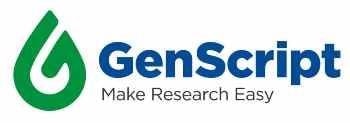Sponsored Content by GenScriptReviewed by Maria OsipovaSep 8 2022
Recently, GenScript made an announcement that demonstrated its commitment to supporting full non-viral cell therapy development into IND-enabling and clinical stages
GenScript USA Inc., one of the global leaders as a services provider for the production of leading life-science research tools, announced the availability of new GMP-grade GenExact™ single-stranded DNA (ssDNA) and GenWand™ closed-end linear double-stranded DNA (dsDNA) services. These services will facilitate next-generation gene and cell therapy R&D programs to enhance IND filing and clinical trials, making them faster and more efficient.
The recent announcement, delivered at the American Society of Gene & Cell Therapy’s (ASGCT) 25th annual meeting, cements GenScript’s position as the leading provider of non-viral homology-directed repair (HDR) template solutions for immune-cell engineering.
GenScript now has a wide variety of grades of non-viral HDR payload materials on offer that support early discovery research and use cases across process development and other clinical studies.
CRISPR-based non-viral gene insertion methods have proved to be popular amongst research teams that are cautious of the FDA’s recently drafted guidance relative to the use of viruses for gene and cell therapy.
Non-viral HDR templates, combined with CRISPR technology, can accelerate cell engineering compared to conventional GMP virus-based engineering, producing results much quicker than other techniques.
This new investment by GenScript demonstrates our commitment to non-viral delivery technology. We look forward to continuing to work with our partners and stakeholders in academia and industry to support their cell therapy R&D programs and further development of non-viral delivery platforms and workflows. We know this technology will be a more efficient and safer solution for cell engineering.”
Ray Chen, Ph.D., President, GenScript USA Life Science Group
New services developed to support both INDs and Phase 1 clinical trials
GenScript’s GMP ssDNA And dsDNA services facilitate rapid CAR-T drug development:
- GenExact™ ssDNA up to 5000 nt in length, 100 mg/batch production scale
- GenWand™ closed-end, linear dsDNA up to 10,000 nt in length, gram level/batch production scale
GenScript collaborated with a number of academic and industry partners to further develop CRISPR non-viral gene insertion. Recently, Dr. Alex Marson’s lab based at UCSF published a paper explaining how CRISPR RNP technology can both eliminate endogenous T-cell receptors and incorporate replacement anti-cancer receptors.
The UCSF team has been utilizing GenScript’s most recent single-strand DNA to enhance non-viral gene knock-in efficiency. By collaborating with GenScript, the team engineered the DNA payload to modify and promote co-localization and delivery (or ‘shuttle’) to the nucleus.
To discover more about GenScript’s genome-editing technologies, visit the GMP ssDNA and dsDNA information page.
About GenScript
Genscript is the world’s leading biotech company providing life sciences services and products. With gene synthesis, peptide, protein, antibody and preclinical drug development service capabilities, we are internationally recognized as a leading biotech company specializing in fundamental life sciences research and early-phase drug discovery services. As of 2018, more than 30,000 peer-reviewed journal articles cited GenScript’s services and products, making GenScript the most frequently cited biotech company in the world.
After almost two decades of fast growth in developing biological reagents, the company has expanded its business into immunotherapy, CDMO, laboratory equipment, and microbial industry to further fulfill its mission in making people and nature healthier through biotechnology.
Founded in 2002 in New Jersey, United States, GenScript serves as a partner for researchers in basic life sciences, translational and biomedical fields as well as early-stage drug development.
Sponsored Content Policy: News-Medical.net publishes articles and related content that may be derived from sources where we have existing commercial relationships, provided such content adds value to the core editorial ethos of News-Medical.Net which is to educate and inform site visitors interested in medical research, science, medical devices and treatments.